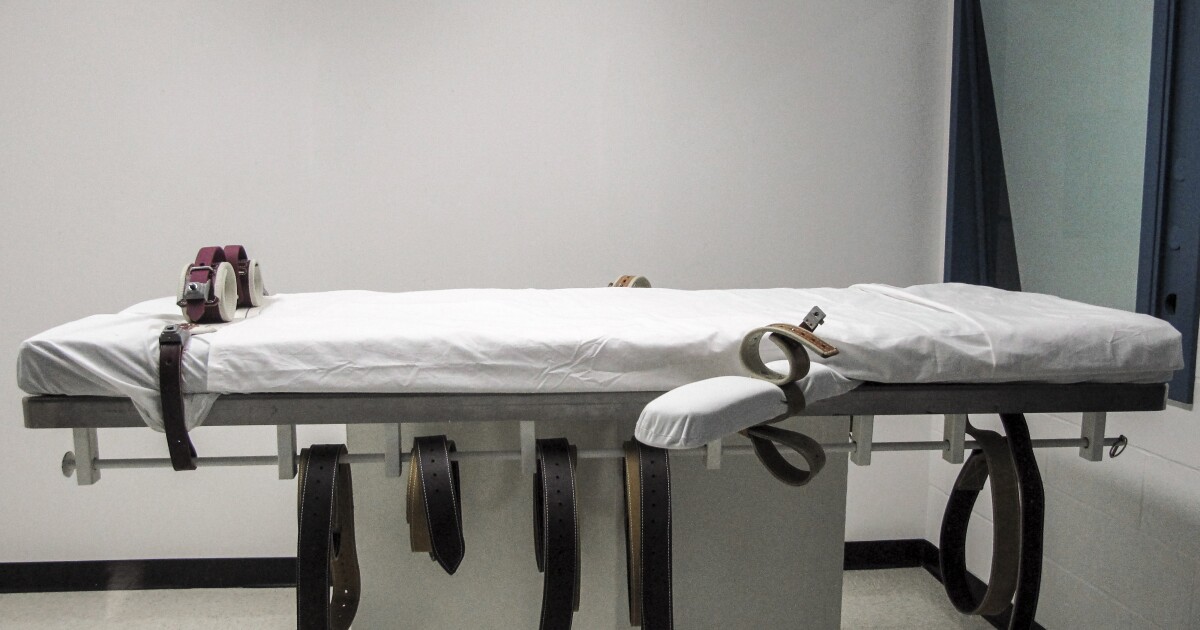

An Alabama man is scheduled to be executed Thursday night for murdering a preacher’s wife in 1988 after the U.S. Supreme Court declined to review the constitutionality of his death sentence.
The case against Kenneth Eugene Smith, 57, is unusual in that the trial judge overrode the jury’s recommendation of life in prison and imposed a death sentence instead.
Alabama became the last state in 2017 to change the law allowing judges this latitude, but it was not retroactive to affect Smith’s case. This became the focus of Smith’s best hope at a reversal in his case — that if he were tried by that same jury, he would not be eligible for the death penalty. The Supreme Court was not swayed and issued its order Wednesday.
Smith is scheduled to die by lethal injection, the fourth man this week to be executed. Inmates in Texas, Arizona, and Oklahoma have already been executed.
MAN ARRESTED AFTER ENTERING NYT BUILDING WITH KNIFE
Smith’s case involves the death of Elizabeth Sennett, who was stabbed 10 times in the chest and neck in a murder-for-hire plot instigated by her husband. Charles Sennett Sr. paid Smith and another man $1,000 each to carry out the murder so he could collect life insurance, prosecutors alleged.
Sennett Sr. committed suicide when the criminal investigation started focusing on him.
Police received a tip and found a tape recorder belonging to Sennett in Smith’s home. He was arrested along with John Forrest Parker. During Smith’s trial, he admitted to committing a burglary but didn’t intend to kill Sennett.
Parker was executed in 2010 and asked Sennett’s sons for forgiveness shortly before he died, Associated Press reported.
A jury first convicted Smith in 1989, but the case was overturned on appeal. He was convicted again in 1996. On both occasions, the majority of jurors voted for life sentences, but a few held out for death.
CLICK HERE TO READ MORE FROM THE WASHINGTON EXAMINER
Defense lawyers have tried to stop the execution based on instances of botched lethal injections in prior execution attempts. On one occasion, doctors had difficulty finding the inmate’s veins and spent an hour inserting a needle.







